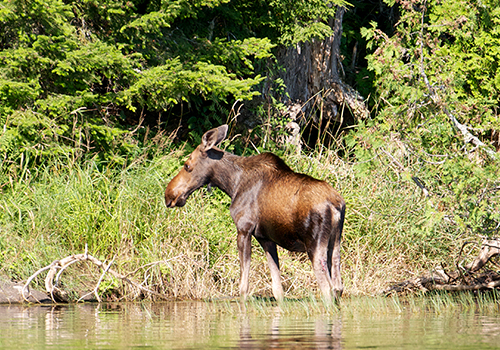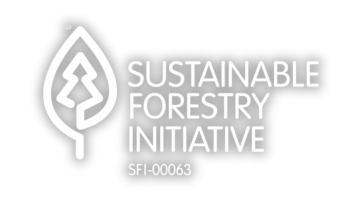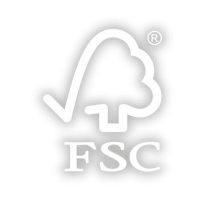
Sustainable forestry requires the conservation and promotion of
– Biological diversity
– Forest ecosystem health, vitality, and productivity
– Soil and water resources
– Socio-economic benefits
The global community has come to a common understanding of what constitutes sustainable forest management for temperate and boreal ecosystems, such as those Wagner manages.
Several organizations have developed comprehensive standards to define the practice of sustainable forest management. Under these standards, each of the criteria listed above is fleshed out and supported by several detailed, measurable “indicators” that require physical evidence of compliance.
Independent, professional auditors perform rigorous audits of forest managers to certify their conformance with the criteria and indicators under the standard.
Wagner Forest Management has earned certifications from the organizations below.
In 2021, the Forest Stewardship Council named Wagner as a Leadership Award winner

Sustainable Forestry Initiative®
As a North American solutions-oriented sustainability organization, the Sustainable Forestry Initiative strives “To advance sustainability through forest focused collaboration”. Through its Forest Management Standard over 370 million acres (150 million hectares) have been certified in the US and Canada. The international organization Program for the Endorsement of Forest Certification (PEFC) recognizes the SFI standard. PEFC has endorsed 45 national forest certification systems accounting for 330 million hectares of certified forests.
Wagner manages over 90% of its clients’ timberlands subject to the stringent requirements of the Sustainable Forestry Initiative’s SFI Forest Management Standard. Wagner has assisted its clients in obtaining SFI certification since 2002. In 2010, Wagner took advantage of a new group multi-site sampling methodology to become SFI certified as a Forest Manager with our participating clients listed in the scope of the registration. Wagner’s certificate code is PwC-SFIFM-377.
The SFI 2022Forest Management Standard promotes sustainable forest management through 13 principles, 17 objectives, 41 performance measures and 101 indicators developed by professional foresters, conservationists, scientists and others. The standard addresses key environmental, social and economic forest values – from water quality and biodiversity, to harvesting and regeneration, to forest carbon management.
When consumers see the SFI label on a product – whether it is reams of paper, packaging or two-by-fours – they can be confident they are buying wood or paper from well-managed forests, backed by a rigorous, third-party certification audit.

Forest Stewardship Council
The Forest Stewardship Council® (FSC®) was created in 1993 to promote responsible forestry on a worldwide basis. FSC standards span economic, social, and environmental concerns, and those standards are now being applied in over 89 countries around the world. Currently over 550 million acres (222 million hectares) are certified to FSC’s FM standard.
FSC certifies against 10 principles, 70 criteria and over 190 indicators that address legal issues, indigenous rights, labor rights, multiple benefits, and environmental impacts surrounding forest management. These rigorous principles and criteria apply to all FSC-certified forests throughout the world, including the different bio-geographic regions of the U.S.
Wagner Forest Management has maintained its FSC Forest Management certification as a group manager since 2008. Annual surveillance audits have been conducted by numerous experienced FSC auditors since the initial assessment. Additionally, full reassessment audits were conducted in 2013, 2018, and 2023. Wagner’s group members hold over 375,000 acres in Maine and 100,000 acres in New Hampshire. The Trademark License Code for Wagner’s group forest management and chain of custody certification is FSC® C007628. Products and species included in the scope of each certificate may be found at www.info.fsc.org.